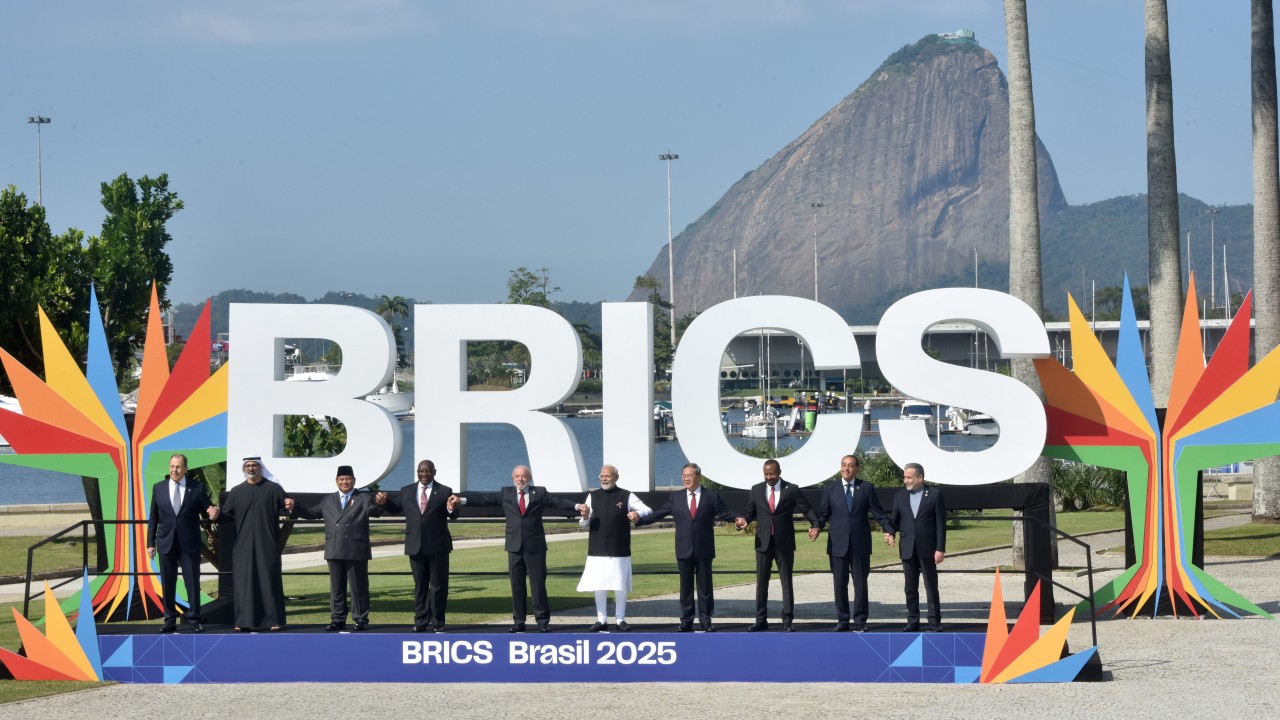BRICS Leaders’ Declaration Condemns Wars and Calls for Reform of Global Governance
The document also addressed issues such as artificial intelligence, climate finance, and information and communication technologies

Condemnation of wars, reform of international organizations, climate change mitigation, and cooperation among member countries are among the key points of the BRICS Leaders' Declaration. The document was endorsed by the BRICS member states on the very first day of the Leaders’ Summit, held on July 6 in Rio de Janeiro.
The text underscores the imperative for enhanced representation of countries beyond the United States–Europe axis within international institutions, including the United Nations Security Council and the International Monetary Fund. It also condemns Israel’s attacks on Iran, the war in Ukraine, and the conflict in the Gaza Strip.
Condemnation of wars
The attacks on Iran, carried out by Israel, and on Ukraine, initiated by Russia, were condemned in the BRICS Leaders' Declaration. The situation in the Gaza Strip also raised concern, especially regarding the occupation of Palestine. For the Global South countries, the solution lies in the creation of a Palestinian state alongside the State of Israel, as outlined in the 1967 United Nations resolution.
The bloc also expressed concern over the recurring threats of nuclear weapons use around the world and reaffirmed the need to continue disarmament, arms control, and non-proliferation programs to preserve peace.
Artificial Intelligence
BRICS acknowledges the importance of Artificial Intelligence in the current development of nations, but emphasizes the need for clear limits regarding intellectual property. The member countries also advocate that technological advancement should serve the greater good of humanity, and that potential risks arising from its use be mitigated.
Inclusive and sustainable economic growth
By enhancing international cooperation across economic, trade, and financial sectors, BRICS countries committed to strengthening trade relations in order to promote inclusive and sustainable growth.
Financing the energy transition
BRICS members recognized the imperative of bridging financing gaps in the energy transition. In this regard, they proposed the allocation of appropriate and low-cost concessional investment from developed countries to developing nations, ensuring a fair and inclusive energy transition.
More diverse and inclusive global governance
BRICS commits to advocating for greater representation of less developed and emerging countries in global decision-making positions, so that these roles are more attuned to the realities of those regions. Additionally, the declaration supported the inclusion of more women in leadership roles within international organizations — particularly from Africa, Latin America, and the Caribbean.
Reform of the United Nations Security Council was also reaffirmed as a priority by the member states. According to them, it is essential that more emerging nations be included among the Council’s 15 members — in order to increase representativeness — and that there be equality in voting rights among them. This would prevent any single country from holding unilateral veto power over discussions, as is currently the case with nations such as the United States.
Commitment to achieving the goals of the Paris Agreement
The member states also committed to fulfilling the goals of the Paris Agreement and the objectives of the United Nations Framework Convention on Climate Change (UNFCCC). They further expressed their intention to strengthen efforts to address the climate crisis and enhance mechanisms related to mitigation, adaptation, and the provision of support to implement these measures in developing countries.
BRICS also expressed support for Brasil’s presidency of COP30, which will be held in November in Belém, Pará. The document reaffirmed that the COP is aligned with all the pillars of the UNFCCC, recognizing the commitments each country has made under the agreements.
Information and Communication Technologies
The BRICS countries emphasized the potential of Information and Communication Technologies (ICTs) to reduce digital inequalities among nations. The heads of state cited the United Nations as the organization responsible for establishing norms and principles for the responsible use of ICTs worldwide.
Support for the NDB and expansion of membership
The countries recognized the importance of the New Development Bank (NDB) as a tool for innovation and modernization in the Global South. They encouraged an expansion in the number of member countries to enhance the Bank's operational effectiveness and institutional resilience.
Space exploration
The group also acknowledged the importance of ensuring that space research serves peaceful and scientific purposes. Militarization and a renewed space race were condemned.
Climate Finance
BRICS emphasized that securing fair climate financing for emerging countries is essential in the fight against climate change. Furthermore, they recognized the Tropical Forests Forever Fund (TFFF) as an innovative and efficient mechanism for environmental conservation. The initiative provides economic compensation to countries that preserve tropical forests.
Fighting prejudice
The countries reiterated the need to fight racism, homophobia, xenophobia, and religious intolerance, as well as the current trend of disseminating such content through disinformation.
By Julia Lima and Eduarda Galdino. Content originally published by the UERJ Scientific News Agency (Agenc)